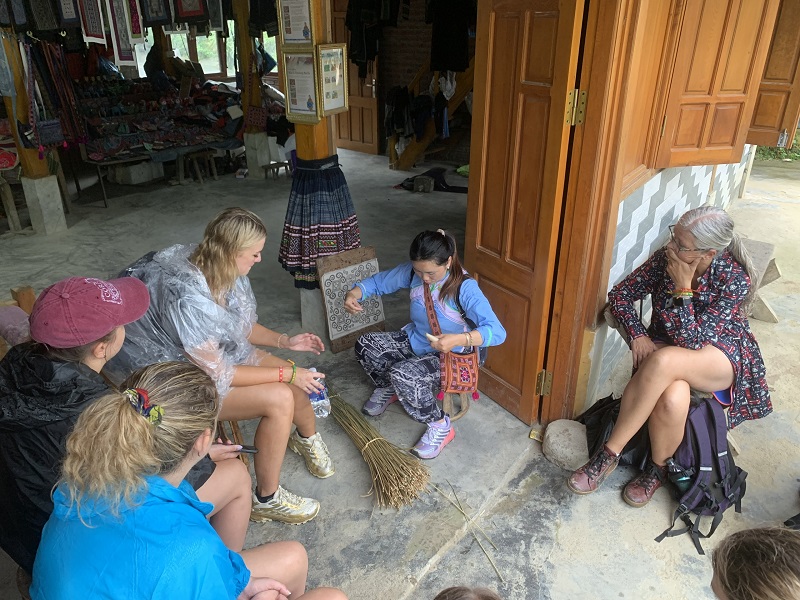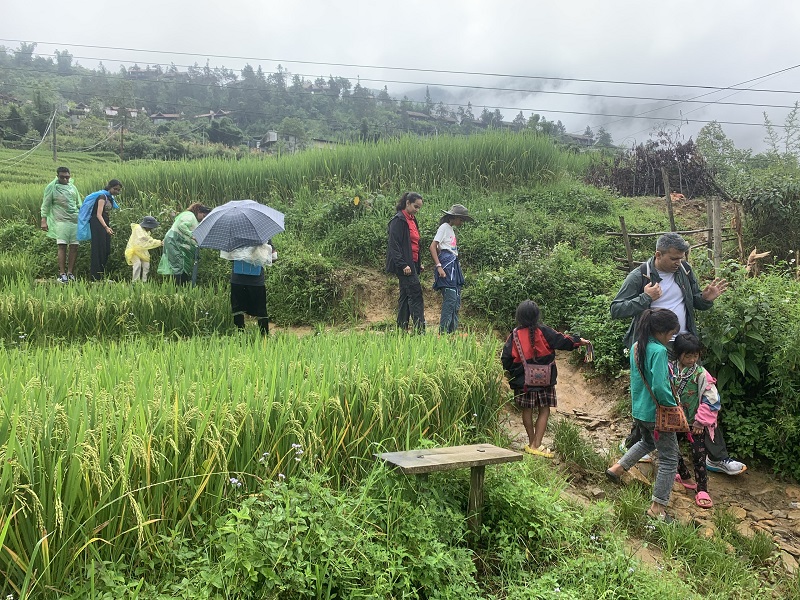- You are here:
- Home »
- DO & DO NOT »
- What You Should Do – What You Should Not Do In Sa Pa
What You Should Do – What You Should Not Do In Sa Pa
When traveling to Sa Pa, it is important to navigate both the beautiful scenery and the local culture. Here’s an overview of what you should do and what you should avoid, particularly in regard to regulations and interactions with street vendors.
What You Should Do
Respect Local Customs and Culture: Sa Pa is home to several ethnic minority groups, including the Mong, Dao, and Tay. Familiarize yourself with their customs and traditions, and always approach interactions with respect. Dress modestly, especially in rural areas, and be observant of local practices.
Try Local Cuisine: Don’t miss out on the chance to sample local dishes such as “thang co” (a traditional horse meat soup). Eating at street vendors is a great way to experience authentic flavors, but ensure that the vendor maintains good hygiene standards.
Support Ethical Tourism: When participating in tours or purchasing handmade goods, choose services that promote fair trade and provide benefits to local communities. This helps sustain the local economy and preserves cultural integrity.
Follow Environmental Guidelines: Sa Pa is known for its stunning natural beauty. Respect the environment by refraining from littering and sticking to designated paths while hiking to avoid damaging the landscape.
Engage with Locals: Take the opportunity to interact with local residents. They can provide valuable insights into their way of life and may share stories that enhance your travel experience. However, be courteous and avoid invasive questions regarding their personal lives.

Traveling with local guide, who have licensed and credible
Use Local Guides: Hiring a local guide enhances your understanding of the area and supports the local economy. Guides can help you navigate the terrain, communicate effectively, and learn about the rich history and culture of Sa Pa.
Stay Updated on Regulations: There might be specific guidelines or regulations in place due to health and safety concerns, especially if there are seasonal festivals or events taking place. Always check for updates from local authorities or your accommodation.
What You Should Not Do
Avoid Scams: Be cautious of vendors offering overly cheap prices or services that seem too good to be true. Always do a little research beforehand on reasonable pricing for goods and services in the area.
Steer Clear of Unlicensed Guides: While it can be tempting to hire someone offering services on the street, ensure that any guides or tours you choose are licensed and credible. This not only ensures your safety but also supports responsible tourism.

Do not buy or use any services from childrens or street vendor
Don’t Disregard Personal Space: While locals are generally friendly, it’s essential to respect personal space. Overly aggressive or intrusive behavior can be unwelcome, especially in less touristy areas.
Don’t Take Photos Without Permission: Always ask for permission before taking photos of people, particularly indigenous individuals. Many locals may feel uncomfortable and it’s important to respect their wishes.
Avoid Flashy Displays of Wealth: Keep valuable items such as expensive jewelry or electronics out of sight. Flashy displays can attract unwanted attention and potential petty theft.
Don’t Neglect Health Precautions: Make sure you take necessary health precautions, including vaccinations recommended for travelers and carrying necessary medications. Be mindful of food hygiene when eating from street vendors.
Don’t Rush: Take your time to enjoy the sights and interact with the local culture. Sa Pa is known for its picturesque landscapes, such as terraced rice fields and majestic mountains, which are best enjoyed at a relaxed pace.
Traveling to Sa Pa is a rewarding experience filled with cultural immersion and breathtaking views. By following these guidelines on what to do and what to avoid, you can ensure a respectful, enjoyable trip while also contributing positively to the local community and environment.
Thanh Tuan
About the Author Sapa Tourism Office
Popular posts

